June 07, 2013
What kind of battery do the Educator ecollars use for the receiver and transmitter?
Full Question:
What kind of battery do the Educator ecollars use for the receiver and what kind for the transmitter? Are the batteries owner replaceable? Are they rechargeable for both the transmitter and the receiver? Are the batteries proprietory or can I buy them anywhere? 
 Cindy's Answer:
Cindy's Answer:
The Educator collars have two different batteries depending on the model that you have. I will include all of the information I have on these.
Lithium Polymer Technology is utilized in the ET300TS 1 & 2 Dog Models and BL-100 (BarkLess collar) models.
Lithium Polymer Technology:
A Lithium polymer is technically a lithium-ion polymer battery. It is very similar to the lithium ion battery but without some of the shortcomings. It can sustain a significant amount of abuse. For example a fully charged Lithium Polymer battery can be punctured with a nail without explosion or fire. Due the majority of Lithium mines being located in China,/ all Lithium Polymer cells are manufactured in China.
Lithium Polymer Storage Guidelines:
Store the cell in a dry location between 0° and 90°. Keep out of direct sunlight. When storing for an extended period, store between 50° to 80°. Store at 40% of capacity, it is best to not to store for long-term on a full charge. When bringing your unit out the first time after long-term storage it may take several cycles to achieve original performance.
Lithium Polymer Precautions:
Do not expose the battery to extreme heat.
Do not short circuit battery.
Do not puncture or modify the battery or pack.
Do not immerse the battery pack in water.
Never reverse charge the battery.
Charge only with charger specified by E-Collar Technologies, Inc.
Educator E-Collar™ Specifics:
The battery charge circuitry used by E-Collar Technologies, Inc. is optimized for Lithium Polymer batteries, no risk of overcharge, no risk of degradation if charged before fully discharged. We make our own battery packs and test each battery pack to strict performance requirements; we typically see a 20% failure rate during our test procedure. The bottom line is you can charge as often as you deem necessary without risk of damage or loss of battery life. It is important to discharge the battery to approximately half its capacity if you want to long term store your e-collar, do not store fully charged. You should get over 2500 hours of operation from the collar receiver and 3500 hours of operation from the transmitter before replacement of the batteries is needed. You can expect to get in excess of 500 charges before noticing degradation, at reduced capacity another 1000 charges are expected. We provide a 5 Volt 1000 mA charger specific to our circuitry, please do not charge with any other charger.
Nickel Metal Hydrides are utilized in the ET400TS 1 & 2 Dog Models, ET500A 1 & 2 Dog Models, 800A 1 & 2 Dog Models, K9800TS 1 & 2 Dog Models, and ET1200A 1 & 2 Dog Models.
Nickel Metal Hydride (NiMH) Technology:
The principles in which NiMH cells operate are based on their ability to absorb, release, and transport (move) hydrogen between the electrodes within the cell. The success of the NiMH battery technology comes from the rare earth, hydrogen-absorbing alloys used in the negative electrode. These metal alloys contribute to the high energy density of the NiMH negative electrode that results in an increase in the volume available for the positive electrode. This is the primary reason for the higher capacity and longer service life of NiMH batteries over competing batteries.
Nickel Metal Hydride Storage Guidelines:
Over time capacity and voltage of NiMH rechargeable batteries will decrease when stored or left unused. This is caused by a chemical reaction that takes place within the cells, commonly referred as self-discharge. The effects of self-discharge will be minimized if unused batteries are properly stored. Proper storage of NiMH batteries requires both temperature control and periodic charging at least once every 3 months. Temperatures between 40° and 70° degrees are best when storing NiMH batteries. The energy storage capability of a battery will be decreased if the battery is allowed to completely self-discharge. The effects of self-discharge can be corrected if the batteries are subjected to cycles of charging and discharging. On the initial charge/discharge cycle, the battery will achieve approximately 95% of rated capacity. Full capacity will be achieved on the second and third cycles.
Nickel Metal Hydride Precautions:
Do not allow the battery to be fully discharged.
Do not expose the battery to extreme heat.
Do not charge in a location above 80° degrees.
Do not short circuit stimulation terminals.
Do not puncture or modify the battery or pack.
Do not immerse the battery pack in water.
Charge only with the charger specified by E-Collar Technologies, Inc.
Educator E-Collar™ Specifics:
The most important fact to know about Nickel Metal Hydride batteries is they do not like to be fully discharged, permanent damage may occur. If this happens to your system it is best to charge them up (10 – 12 hours only) and discharge (receiver and transmitter on) the system one time. It is best to charge them before they get to yellow, every night is acceptable. Every 6 months it is good practice to let them run down to red and immediately charge them up. Now the regular nightly or every other night of charging can be resumed. You should get over 2500 hours of operation from the collar receiver and 3500 hours of operation from the transmitter before replacement of the batteries is needed. We provide a 10 Volt 500 mA charger specific to our circuitry, please do not charge with any other charger.
The batteries are owner replaceable or you also can opt to send them back to E-Collar Tech to have them replace them for you.
They are rechargeable for both the receiver and the transmitter.
I don’t know of anywhere else that you would be able to purchase the batteries. The batteries prices at this time range from $12.00 – 16.00.
Lithium Polymer Technology is utilized in the ET300TS 1 & 2 Dog Models and BL-100 (BarkLess collar) models.
Lithium Polymer Technology:
A Lithium polymer is technically a lithium-ion polymer battery. It is very similar to the lithium ion battery but without some of the shortcomings. It can sustain a significant amount of abuse. For example a fully charged Lithium Polymer battery can be punctured with a nail without explosion or fire. Due the majority of Lithium mines being located in China,/ all Lithium Polymer cells are manufactured in China.
Lithium Polymer Storage Guidelines:
Store the cell in a dry location between 0° and 90°. Keep out of direct sunlight. When storing for an extended period, store between 50° to 80°. Store at 40% of capacity, it is best to not to store for long-term on a full charge. When bringing your unit out the first time after long-term storage it may take several cycles to achieve original performance.
Lithium Polymer Precautions:
Do not expose the battery to extreme heat.
Do not short circuit battery.
Do not puncture or modify the battery or pack.
Do not immerse the battery pack in water.
Never reverse charge the battery.
Charge only with charger specified by E-Collar Technologies, Inc.
Educator E-Collar™ Specifics:
The battery charge circuitry used by E-Collar Technologies, Inc. is optimized for Lithium Polymer batteries, no risk of overcharge, no risk of degradation if charged before fully discharged. We make our own battery packs and test each battery pack to strict performance requirements; we typically see a 20% failure rate during our test procedure. The bottom line is you can charge as often as you deem necessary without risk of damage or loss of battery life. It is important to discharge the battery to approximately half its capacity if you want to long term store your e-collar, do not store fully charged. You should get over 2500 hours of operation from the collar receiver and 3500 hours of operation from the transmitter before replacement of the batteries is needed. You can expect to get in excess of 500 charges before noticing degradation, at reduced capacity another 1000 charges are expected. We provide a 5 Volt 1000 mA charger specific to our circuitry, please do not charge with any other charger.
Nickel Metal Hydrides are utilized in the ET400TS 1 & 2 Dog Models, ET500A 1 & 2 Dog Models, 800A 1 & 2 Dog Models, K9800TS 1 & 2 Dog Models, and ET1200A 1 & 2 Dog Models.
Nickel Metal Hydride (NiMH) Technology:
The principles in which NiMH cells operate are based on their ability to absorb, release, and transport (move) hydrogen between the electrodes within the cell. The success of the NiMH battery technology comes from the rare earth, hydrogen-absorbing alloys used in the negative electrode. These metal alloys contribute to the high energy density of the NiMH negative electrode that results in an increase in the volume available for the positive electrode. This is the primary reason for the higher capacity and longer service life of NiMH batteries over competing batteries.
Nickel Metal Hydride Storage Guidelines:
Over time capacity and voltage of NiMH rechargeable batteries will decrease when stored or left unused. This is caused by a chemical reaction that takes place within the cells, commonly referred as self-discharge. The effects of self-discharge will be minimized if unused batteries are properly stored. Proper storage of NiMH batteries requires both temperature control and periodic charging at least once every 3 months. Temperatures between 40° and 70° degrees are best when storing NiMH batteries. The energy storage capability of a battery will be decreased if the battery is allowed to completely self-discharge. The effects of self-discharge can be corrected if the batteries are subjected to cycles of charging and discharging. On the initial charge/discharge cycle, the battery will achieve approximately 95% of rated capacity. Full capacity will be achieved on the second and third cycles.
Nickel Metal Hydride Precautions:
Do not allow the battery to be fully discharged.
Do not expose the battery to extreme heat.
Do not charge in a location above 80° degrees.
Do not short circuit stimulation terminals.
Do not puncture or modify the battery or pack.
Do not immerse the battery pack in water.
Charge only with the charger specified by E-Collar Technologies, Inc.
Educator E-Collar™ Specifics:
The most important fact to know about Nickel Metal Hydride batteries is they do not like to be fully discharged, permanent damage may occur. If this happens to your system it is best to charge them up (10 – 12 hours only) and discharge (receiver and transmitter on) the system one time. It is best to charge them before they get to yellow, every night is acceptable. Every 6 months it is good practice to let them run down to red and immediately charge them up. Now the regular nightly or every other night of charging can be resumed. You should get over 2500 hours of operation from the collar receiver and 3500 hours of operation from the transmitter before replacement of the batteries is needed. We provide a 10 Volt 500 mA charger specific to our circuitry, please do not charge with any other charger.
The batteries are owner replaceable or you also can opt to send them back to E-Collar Tech to have them replace them for you.
They are rechargeable for both the receiver and the transmitter.
I don’t know of anywhere else that you would be able to purchase the batteries. The batteries prices at this time range from $12.00 – 16.00.
88% (23 out of 26)
respondents found this answer helpful


Can't find what you're looking for?



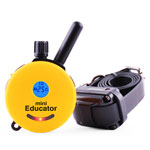
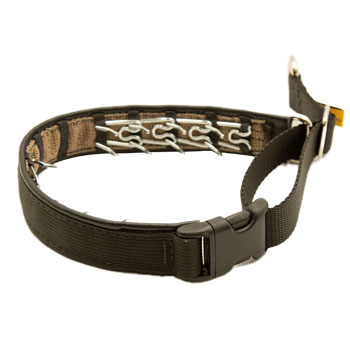
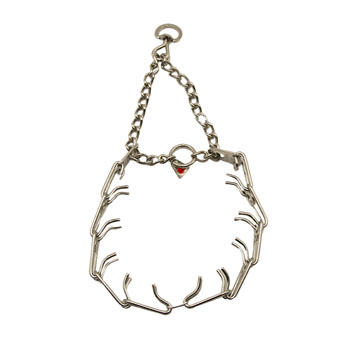
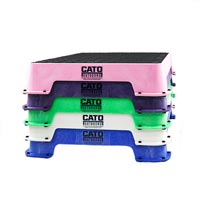
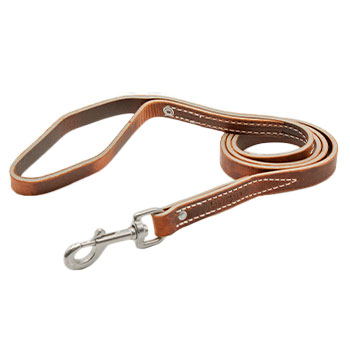
.jpg)